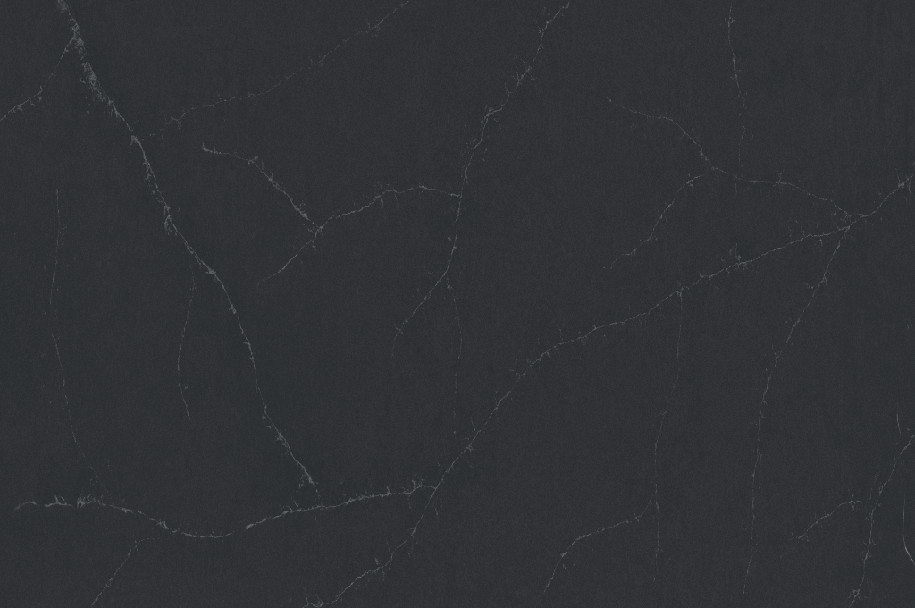
Soapstone
Soapstone countertops are made from a natural metamorphic rock rich in talc, giving the surface a soft, velvety texture and a deep, organic appearance. In kitchens, soapstone is prized for its non-porous, heat-resistant, and chemically inert properties, making it both beautiful and functional for food prep areas. Over time, soapstone develops a natural patina, adding character and depth to the surface — ideal for kitchens with a classic, rustic, or transitional design aesthetic.
Composition: Natural stone composed of talc, chlorite, and magnesite
Characteristics: Non-porous, heat-resistant, stain-resistant, soft surface that develops a patina
Uses: Kitchen countertops, sinks, and islands where a warm, lived-in look is desired
Design Tips:
Soapstone’s soft charcoal or green-grey tones pair well with white or shaker-style cabinetry for a timeless kitchen palette. Unlike granite or marble, it doesn’t require sealing, though applying food-safe mineral oil enhances the depth of colour and helps even out natural darkening over time. Because soapstone is softer than other stones, it’s more prone to surface scratches — but these can be sanded out or left to blend into the developing patina for a more natural look.
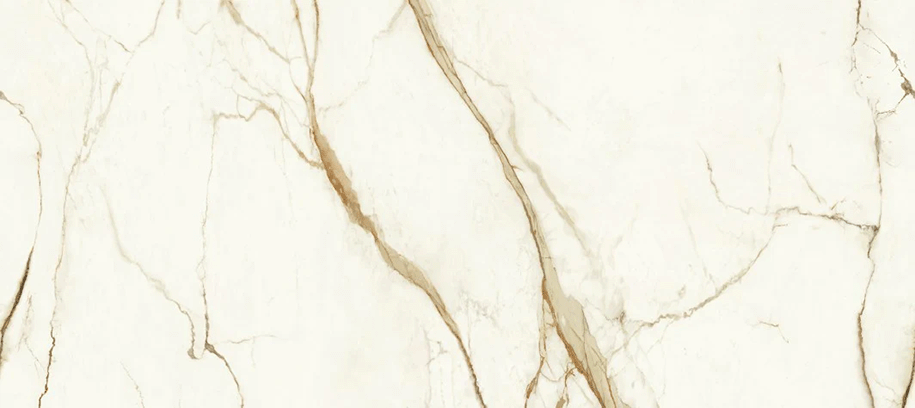
Porcelain
Porcelain countertops are made from dense ceramic clay fired at extremely high temperatures, resulting in a durable, non-porous surface that is highly resistant to heat, UV, stains, and scratches. Increasingly popular in contemporary and European-style interiors, porcelain slabs are ultra-thin and can be installed over existing surfaces or used for sleek waterfall edges.
Composition: Sintered ceramic clay, fired at high temperatures
Characteristics: Thin profile, tough, UV- and heat-resistant, low maintenance, eco-friendly
Used: Perfect for indoor and outdoor kitchens, bathrooms, and modern minimalistic spaces
Design Tips: Porcelain’s ultra-thin profile and large slab sizes make it ideal for achieving a seamless, modern aesthetic. Use it for full-height backsplashes, waterfall islands, or even integrated sinks to create a cohesive, sculptural effect. For a refined, high-end look, opt for slabs with subtle veining or matte finishes that mimic natural stone without the upkeep.

Quartz
Quartz countertops are man-made surfaces composed of crushed quartz crystals and resin. Quartz countertops are known for their durability, low maintenance, and wide range of colours and patterns. Unlike natural stones such as marble or granite, quartz countertops are engineered and can be more uniform in appearance. They’re popular in kitchens and bathrooms due to their resistance to stains, scratches, and heat.
Composition: crushed quartz mixed with resin
Characteristics: Non-porous, doesn’t require sealing.
Used: Kitchens and bathrooms where durability and low maintenance are priorities
Design Tips: Often available in polished or matte finishes – Polished quartz surfaces often require less maintenance than their matte counterpart, however, matte quartz countertops offer contemporary textural qualities.

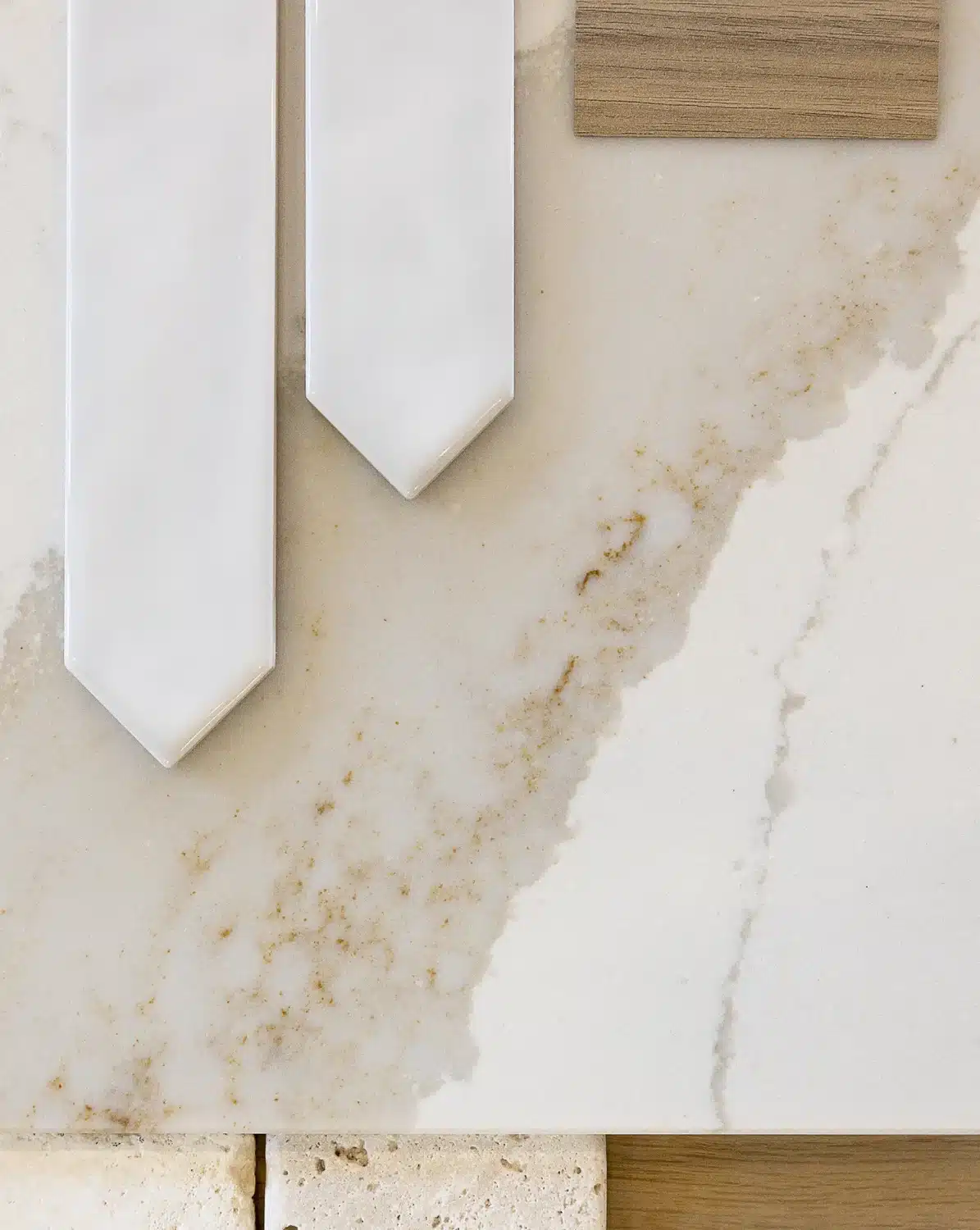
Solid Surface
A solid surface countertop is a synthetic material made from a combination of acrylic, polyester resins, and sometimes natural minerals like marble dust. It’s a versatile option that can mimic the look of natural stone but with added durability and ease of maintenance. Solid surface countertops are non-porous, resistant to stains, and can be seamlessly integrated with sinks and backsplashes. Solid surface materials also have unique sculptural capabilities suited for a variety of bespoke millwork applications.
Composition: Acrylic or polyester resins, sometimes combined with natural materials.
Characteristics: Non-porous, seamless joins.
Uses: Versatile applications in most millwork applications for a continuous look.
Design Tip: Solid surfaces such as Corian are excellent for curved applications as they can be cut or moulded at a fraction of the cost of stone surfaces.
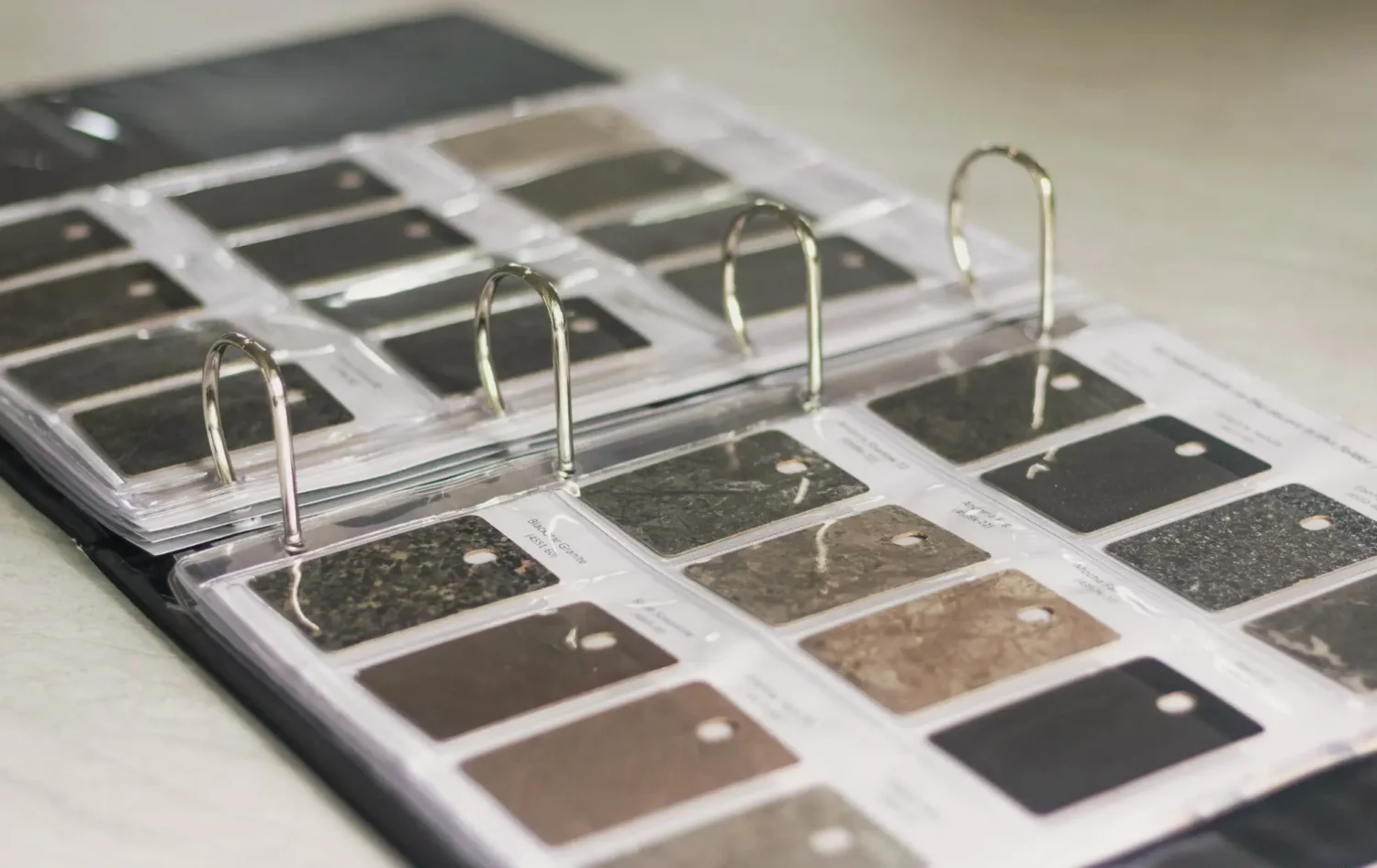
Laminate
A laminate countertop is constructed by fusing layers of paper or fabric with resin and then applying it to a substrate material such as particleboard or MDF. Laminate is generally a cost-effective option available in a wide range of colours, patterns, and textures – including ones that mimic natural stone or wood. Laminate countertops are durable, easy to clean, and resistant to stains and scratches. However, they can be susceptible to damage from heat and moisture if not properly maintained.
Composition: Layers of paper or fabric impregnated with resin over composite wood
Characteristics: Affordable, comes in many colours and patterns.
Uses: Budget-friendly kitchens and bathrooms.
Design Tip: Opt for a rounded or bullnose laminate counter-edge profile for a seamless look.
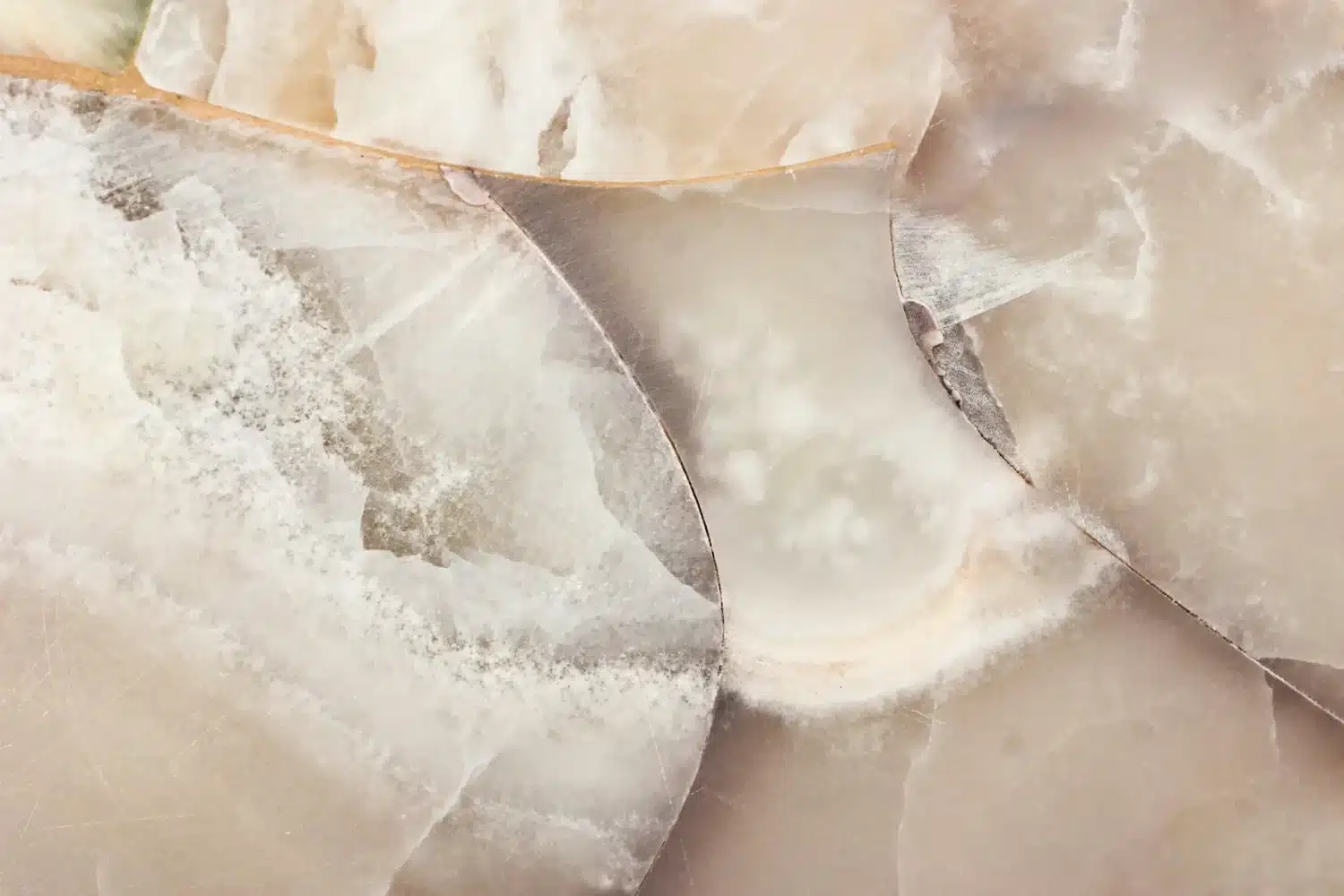
Marble
Marble countertops are a manufactured stone product predominately found in rock quarries in Italy, China, India and Spain. Each marble slab is unique and is often used as a statement piece in luxury kitchens or bathrooms. Marble countertops require regular maintenance and sealing to avoid staining and scratching.
Composition: Natural stone, known for its veining.
Characteristics: Porous, prone to staining and scratching.
Uses: Often used in baking areas for its cool surface and in luxury bathrooms.
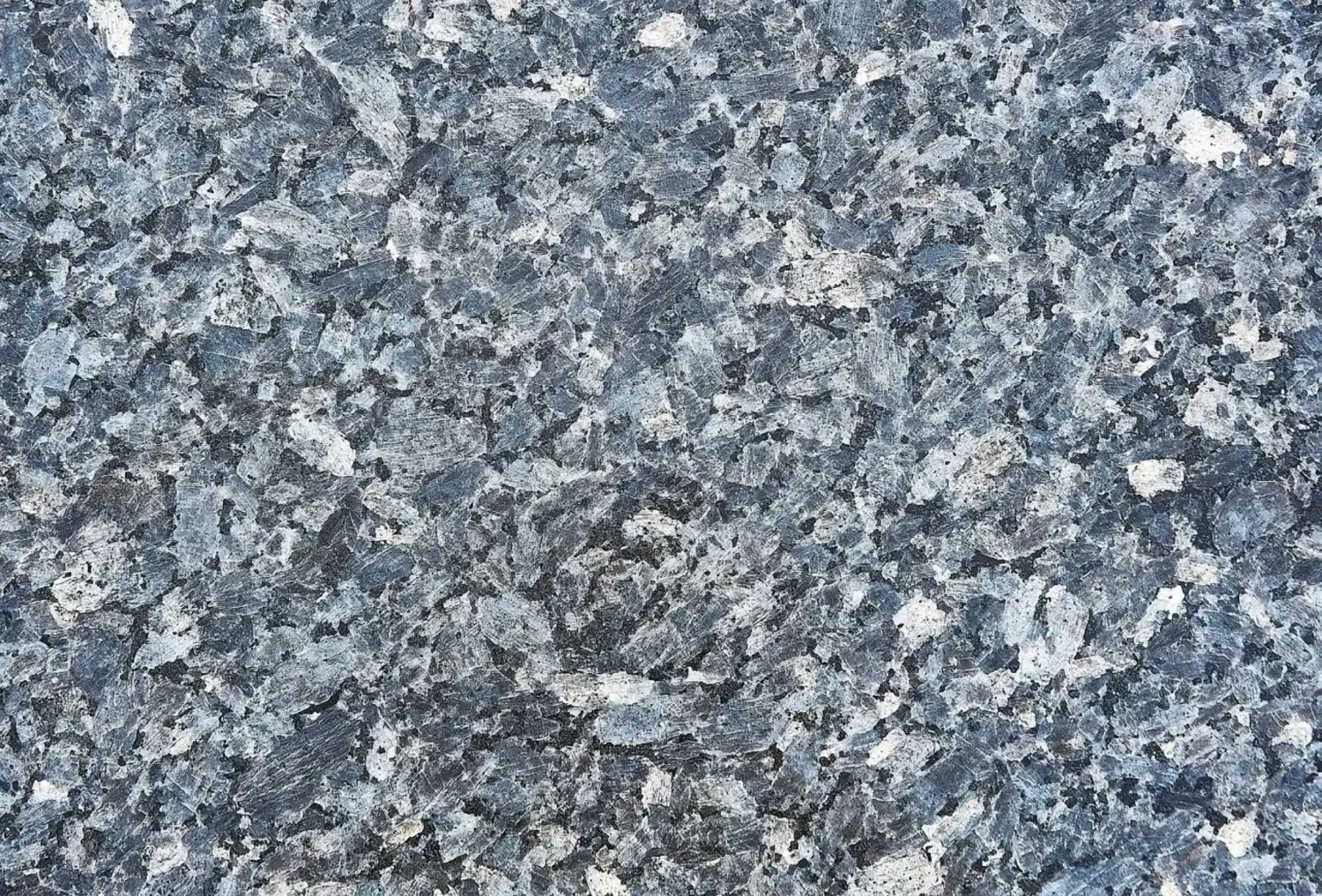
Granite
Granite countertops are a natural stone surface composed mainly of quartz, feldspar, and mica. Granite countertops are highly prized for their durability, heat resistance, and unique beauty, with each slab having its own distinct patterns and colours. Granite is generally less porous than marble, however, granite slabs still require periodic sealing to maintain their appearance and protect against stains.
Composition: 100% natural stone, each slab unique
Characteristics: Durable, heat-resistant, and requires sealing to prevent stains.
Uses: High-end kitchens and bathrooms.